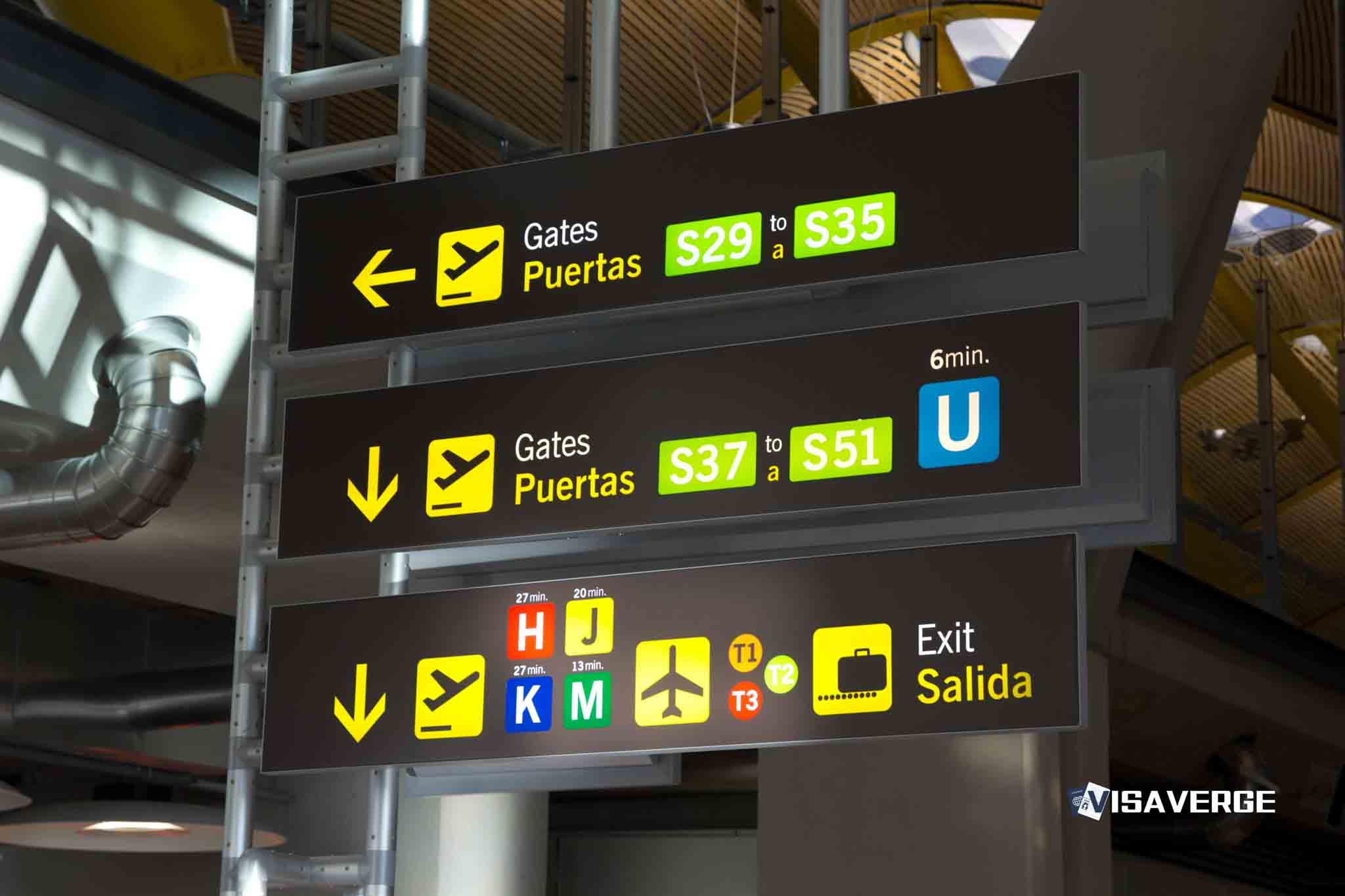Key Takeaways
• Core eligibility includes education, experience, certifications, and legal requirements for targeted professions.
• Professional competencies combine technical skills and soft skills like adaptability and teamwork.
• Use OPM’s General Schedule Qualification Standards for federal jobs and tailor applications precisely.
Understanding Core Eligibility, Professions, and Professional Competencies: A Step-by-Step Guide
When applying for jobs—especially in government or regulated sectors—knowing the core eligibility requirements, the right professions to target, and the needed professional competencies is essential. This guide explains what these terms mean, why they matter, and how you can meet the standards for your chosen career. You’ll find step-by-step instructions, practical tips, and a checklist to help you succeed.

Introduction: Why Core Eligibility and Professional Competencies Matter
Core eligibility is the basic set of rules or standards you must meet to qualify for a job or professional program. These standards often include your education, work experience, skills, and sometimes legal or regulatory requirements. Professions are the specific jobs or career fields you might want to enter, and professional competencies are the skills and abilities you need to do those jobs well.
Understanding these requirements is important because:
- You can save time by only applying for jobs you’re eligible for.
- You can prepare better applications by knowing what employers want.
- You can plan your career by building the right skills and experience.
This guide will walk you through the process of checking your eligibility, understanding what competencies you need, and applying for jobs—especially in the federal government and other regulated sectors.
Step 1: Identify Your Target Profession and Occupational Series
Before you start, you need to know which profession or job series you want to pursue.
How to Do This:
- Think about your interests and skills. What kind of work do you enjoy? What are you good at?
- Research job titles and descriptions. Use job boards, government websites, or professional associations to find out what’s available.
- Check if the job is regulated. Some jobs, especially in government or healthcare, have strict eligibility rules.
Time Estimate: 1–2 hours
Common Pitfall: Not being specific enough. If you just say “I want to work in government,” you might miss important details. Instead, look for exact job titles like “Human Resources Specialist” or “Environmental Scientist.”
Step 2: Review Core Eligibility Requirements
Once you’ve picked a profession, you need to find out the core eligibility standards for that job.
Where to Find This Information:
- For U.S. federal jobs: The U.S. Office of Personnel Management (OPM) sets the rules. Visit the OPM General Schedule Qualification Standards page.
- For other sectors: Check the official website of the relevant agency or professional body.
What to Look For:
- Education: Do you need a specific degree or major?
- Experience: How many years of related work do you need?
- Certifications: Are there licenses or certificates required?
- Other requirements: Some jobs need background checks, citizenship, or security clearances.
Time Estimate: 1–2 hours
Common Pitfall: Missing hidden requirements. Sometimes, jobs have extra rules (like U.S. citizenship or a clean criminal record) that aren’t obvious at first glance.
Step 3: Assess Your Education and Experience
Now, compare your background to the requirements you found.
How to Do This:
- List your degrees, majors, and schools.
- Write down your work experience, including job titles and dates.
- Note any certifications or licenses you have.
- Check if your experience matches the job’s requirements. For example, if a job needs “two years of specialized experience,” make sure you have that.
Time Estimate: 1–2 hours
Common Pitfall: Overestimating your qualifications. Be honest—if you don’t meet the minimum requirements, your application may be rejected automatically.
Step 4: Identify and Build Professional Competencies
Professional competencies are the skills and abilities you need to do the job well. These include both technical skills (like using certain software) and soft skills (like teamwork or communication).
Key Competencies for 2025 (According to the World Economic Forum):
- Technological literacy: Being comfortable with computers and new technology.
- Empathy and active listening: Understanding and caring about others’ feelings and ideas.
- Curiosity and lifelong learning: Wanting to learn new things all the time.
- Talent management: Helping others grow and succeed.
- Service orientation: Focusing on helping customers or clients.
Sector-Specific Competencies:
- Mining and Metals: Environmental stewardship (caring for the environment).
- Insurance and Pensions: Resilience, flexibility, and agility (adapting to change).
How to Build Competencies:
- Take online courses or workshops.
- Volunteer or take on new tasks at work.
- Ask for feedback and work on your weaknesses.
- Join professional groups or networks.
Time Estimate: Ongoing—plan to spend a few hours each week.
Common Pitfall: Ignoring soft skills. Many employers value teamwork, communication, and adaptability as much as technical knowledge.
Step 5: Prepare Your Application Materials
Once you know you meet the core eligibility and have the right competencies, it’s time to prepare your application.
What to Include:
- Resume or CV: Clearly show your education, experience, and skills.
- Cover letter: Explain why you’re a good fit for the job.
- Proof of qualifications: Include copies of degrees, certificates, or licenses if required.
- Professional references: List people who can vouch for your skills and character.
Special Note for Federal Jobs: If you’re applying for a senior executive role, you’ll need to write statements showing how you meet the Executive Core Qualifications (ECQs), such as Business Acumen and Building Coalitions.
Time Estimate: 3–5 hours
Common Pitfall: Using a generic resume. Tailor your application to each job by matching your skills and experience to the job description.
Step 6: Submit Your Application
Follow the instructions in the job posting carefully.
For U.S. Federal Jobs:
- Apply through USAJOBS: The official portal for federal jobs is USAJOBS.gov.
- Attach all required documents.
- Double-check deadlines and submission requirements.
For Other Sectors:
- Use the employer’s online system or email.
- Follow all instructions exactly.
Time Estimate: 30–60 minutes per application
Common Pitfall: Missing deadlines or forgetting to attach documents. Always check your application before submitting.
Step 7: Prepare for Evaluation and Interviews
After you apply, your application will be reviewed to see if you meet the core eligibility and professional competencies.
What to Expect:
- Screening: HR specialists check if you meet the minimum requirements.
- Interviews: You may be asked about your experience, skills, and how you handle challenges.
- For senior roles: You might need to give examples of how you’ve shown leadership or managed resources.
Time Estimate: 1–2 weeks for screening; interviews may take another 1–2 weeks.
Common Pitfall: Not preparing for behavioral questions. Practice telling stories that show your skills and competencies.
Step 8: Troubleshooting Common Problems
Even if you follow all the steps, you might run into problems. Here’s how to handle some common issues:
Problem: You Don’t Meet All the Requirements
- Solution: Look for entry-level jobs or internships to build experience. Take courses to fill skill gaps.
Problem: Your Foreign Degree Isn’t Recognized
- Solution: Get your credentials evaluated by a recognized agency. Some jobs may require U.S. equivalency.
Problem: You Lack a Required Certification
- Solution: Find out how to get certified. Many professional bodies offer exams or training.
Problem: Application Rejected Without Explanation
- Solution: Review the job posting and your application. Did you miss a requirement? Reach out to HR for feedback if possible.
Step 9: Stay Up to Date with Policy Changes
Rules and requirements can change. For example, the OPM updates qualification standards regularly, and new skills may become important as technology advances.
How to Keep Current:
- Check official websites like OPM’s Qualification Standards page.
- Follow industry news and professional associations.
- Sign up for job alerts on major job boards.
Time Estimate: 10–15 minutes per week
Common Pitfall: Relying on outdated information. Always check the latest standards before applying.
Step 10: Use a Checklist Before You Apply
Here’s a quick checklist to make sure you’re ready:
- [ ] I have identified the exact profession and job series I want.
- [ ] I have reviewed the core eligibility requirements.
- [ ] My education and experience match the job’s minimum standards.
- [ ] I have built or am building the required professional competencies.
- [ ] My resume and cover letter are tailored to the job.
- [ ] I have all required documents ready.
- [ ] I have checked for any recent policy changes.
- [ ] I am prepared for interviews and assessments.
Additional Resources
- U.S. Office of Personnel Management (OPM): General Schedule Qualification Standards
- World Economic Forum: Future of Jobs Report 2025
- National Association of Colleges and Employers (NACE): Career Readiness Competencies
Expert Insights and Sector Trends
According to analysis by VisaVerge.com, employers are now looking for a mix of technical and soft skills when hiring. For example, in the Insurance and Pensions Management sector, 83% of employers say curiosity and lifelong learning are core skills, much higher than the global average of 50%. In the same sector, 94% value resilience and agility, compared to 67% globally. In Mining and Metals, environmental stewardship is valued by 50% of employers—2.5 times the global average.
This means that, no matter your profession, you should focus on both your technical abilities and your ability to adapt, learn, and work with others.
Conclusion and Next Steps
Meeting core eligibility and building professional competencies are not just about checking boxes—they’re about preparing yourself for a successful, rewarding career. By following the steps in this guide, you can:
- Find jobs that match your background
- Build the skills employers want
- Submit strong applications
- Stay ready for changes in the job market
Remember, the world of work is always changing. Keep learning, stay flexible, and check official sources regularly to make sure you’re always eligible for the jobs you want.
If you’re ready to start, visit the OPM General Schedule Qualification Standards page to review the latest requirements for federal jobs. Good luck with your career journey!
Learn Today
Core Eligibility → The basic qualifications including education, experience, and legal requirements needed to qualify for a job.
Professional Competencies → The skills and abilities, both technical and soft, necessary to perform a job well.
OPM (Office of Personnel Management) → U.S. federal agency that sets job qualification standards for government employment.
Executive Core Qualifications (ECQs) → Leadership competencies required for senior federal executive positions, like Business Acumen.
Credential Evaluation → The process of assessing foreign degrees to determine their U.S. equivalency for job eligibility.
This Article in a Nutshell
Understanding core eligibility and professional competencies is essential to succeed in regulated sectors. Identify your profession, assess qualifications, build skills, and tailor applications to meet strict standards for government and industry jobs with practical step-by-step guidance.
— By VisaVerge.com













